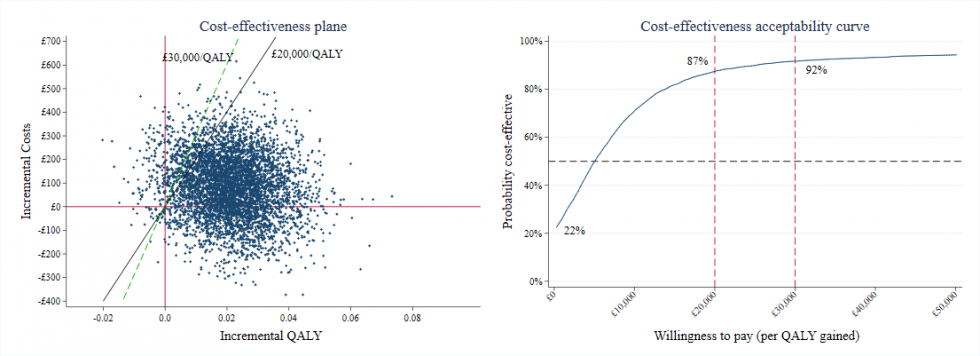Health Data and Statistics
Health statistics are used to understand risk factors for communities, track and monitor diseases, see the impact of policy changes and assess the quality and safety of health care.

Reimagining Prevention for a Healthier, More Prosperous Society
12 October 2023
In this report, we highlight the significance of prevention as a cost-effective and often cost-saving investment for public sector resources. Prevention, covering primary, secondary, and tertiary measures, can help to reduce ill health, improve healthcare capacity, and increase wider economic growth.

OHE Annual Lecture 2023 | The ECO-nomics of Health in a Shifting Climate: Fostering Well-being, Sustainable Livelihoods, and a Greener Future
27 July 2023
Listen to Professor Elizabeth Robinson, Director of the Grantham Research Institute at the London School of Economics and Political Science, as she delivered our Annual Lecture reframing the economics of health and healthcare in a changing climate.

Dementia in the UK: Estimating the Potential Future Impact and Return on Research Investment
11 July 2023
This report contributes to the understanding of people’s proximity to dementia (e.g., people with dementia and their carers forecast) and so the potential future number of people who will be impacted by dementia, and the economic benefits arising from dementia research in the UK.
Investment in dementia research and medicine research and development (R&D) is significantly lower in comparison to other diseases such as cancer. However, recent breakthroughs and growing R&D pipeline show that this area has high potential for research over the next years. It is, therefore, important to estimate the benefits of dementia research to patients, their carers, the economy, and society.

Resource Allocation in Public Sector Programmes: Does the Value of a Life Differ Between Governmental Departments?
1 February 2021
This research paper examines whether value of a life estimates used in economic evaluation differs between government departments in a selection of developed countries. The authors find that generally estimates used in transport and the environment exceeded those used in health, which suggests that health may be undervalued by departments of health compared to departments of transport or environment.

25 Years of the Cost Effectiveness Acceptability Curve
30 December 2019
In 1994 Ben van Hout introduced the concept of the cost effectiveness acceptability curve (CEAC). In the 25 years since, the CEAC has become a standard…

Chronic Diseases and the Stock of Health: Quantification Using EQ-5D-5L
15 October 2019
Chronic diseases affect individuals’ health status and its impact is reflected by the stock of health, which measures the amount of health of a population in…

OHE Lunchtime Seminar: What Can NHS Trusts do to Reduce Cancer Waiting Times?
10 January 2019
OHE Lunchtime Seminar with NHS Improvement Economics Team Members Sarah Karlsberg, Steven Paling and Júlia Esquerré. The seminar will present evidence on where NHS trusts can…

Data Governance Arrangements for Real-World Evidence in Japan
1 September 2019
In 2015, OHE Consulting published a report on data governance arrangements for real-world evidence (RWE) covering the specifics under which RWE was used in eight different…

The Impact of New Medicines in the NHS: 70 Years of Innovation
14 August 2018
This year marks the 70th birthday of the NHS. Our latest Consulting Report describes the most important new medicines as identified by experts.